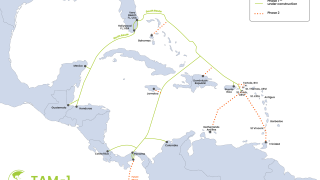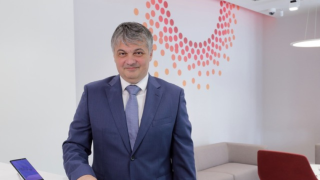
As a global wholesale systems integrator, Odine sees itself as a trusted partner, supporting companies’ digitalisation initiatives so they can take full advantage of new revenue opportunities. CEO Alper Tunga Burak gives the lowdown on the firm’s strategy.
How should wholesale operators evolve their business practices to meet today’s market needs?
They must become more agile and flexible, working in a different way to how wholesalers have traditionally operated. They must be able to rapidly launch, sustain and grow new services while maintaining their profitability and competitive edge.
Wholesale operators need to evolve to meet changing market needs and demands, vastly improving service agility, variety and availability to achieve that aim. Coupled with this, they must also put in place real-time control and global visibility to aid traffic and routing decisions on the network, as well as automate as much as possible. Only then can operators be in a position to compete effectively against hyperscalers and OTT players, and to evolve and thrive through their digital transformation.
How can this be aided by new models and what should these look like?
This level of evolution requires a transformation and significant investment. Most service providers are not able to handle a transformation of this magnitude on their own, so this is where telco-focused systems integrators can step in to help by providing tailored "as-a-service” virtualisation, consolidation and future-proofed service-based offerings.
Odine is making this evolution a reality: we work with international telecoms operators to drive their global transformation via integrated networks featuring best-of-breed software and hardware, private cloud infrastructure that includes platform-as-a-service and software-as-a service offerings, and our intelligent end-to-end business management applications for wholesale voice. We help meet the growing need for virtualisation via our focus on network-virtualisation-as-a-service, with our portfolio comprising services required throughout the lifecycle.
Among other bespoke and tailored services, we also offer intelligence and real-time monitoring functions to help get the most of any network. Together, these offerings all help generate efficiency, resiliency and potential new revenues.
But what should wholesale telco models of today look like? One, they must be fit for purpose and carrier-grade, with service-level agreements to match; two, they must be available in public and private cloud; and three, these services must offer the option of being deployed on networks and in the cloud.
What challenges can these models solve for the wholesale industry?
Ageing legacy software and hardware, and the related services and support agreements are all inconvenient and expensive headaches for operators. Many operators are now truly finding out the total cost of running legacy solutions from a technology and hardware perspective.
We are hearing from prospects and customers that savings through virtualisation of services and network transformation can be up to US$5 million annually.
In addition, when you look at the growing regulatory requirements globally for validation and fraud management, operators can be put in a position where they are not only exposed to the risk of disputes and service issues, but also face a potential loss of revenues and fines for non-compliance. Odine is assisting operators to manage this growing challenge through validation services as part of our offerings.
What kinds of benefits can these models bring in terms of cost efficiencies and helping better serve customers?
There are many benefits. For one, capex and opex savings can be huge, and it is easier to operate, requiring less resources. There are also savings to be had by removing data centres and shifting services to the cloud, all while maintaining a geographical presence and delivering services globally at the highest quality and performance
Furthermore, automation and orchestration can reduce potential human errors, while optimising the capacity of resources based on real-time and forecast demand.
These kinds of models represent a huge opportunity for operators. When you need to mobilise and manage resources, and orchestrate teams, cloud technology services are really making a big difference and are now accessible to all.
What is Odine doing to help its customers with their digital transformation?
We don't see our customers as customers, but as partners who we help to overcome real issues as they evolve. We use a diagnostic approach and tailored solutions to deliver best-of-breed solutions.
Odine helps enable efficiency, security, integration and automation-as-a-service, transforming customers’ businesses. Not many players can do this transformation for telcos at such a scale and with proven end-to-end methodology.
We have the expertise and knowledge to virtualise solutions in all domains – from the radio to the transport, edge and core-network domain – and have done this at tier-1 service providers.
How does Odine plan to evolve its offerings in the future?
We are always on the lookout for additional services and features to add to our capabilities. We are also looking into increasing our global footprint, and deploying certain voice and networking services in the public cloud.
But what is our unique value proposition? When you look at the systems-integration market, the typical integrators do everything and operate in every domain. We differentiate and set ourselves apart from others by having a focus specifically on the wholesale market. Our industry experience and knowledge create a unique value for operators, which is why so many operators are working with and talking to Odine about how to make transformation a reality.




